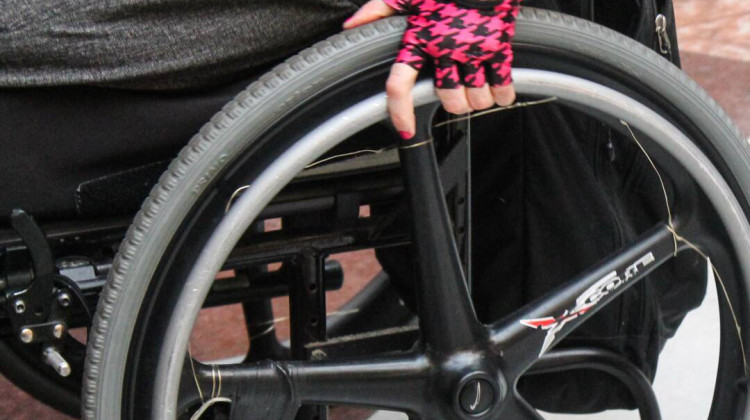
More than 40 states have adopted or have pending legislation to extend pregnancy-related Medicaid coverage.
Mustaf_omar/UnsplashIndiana residents enrolled in Medicaid during pregnancy used to risk losing that coverage 60 days after giving birth. Indiana has now received federal approval to extend that coverage to a full year.
About 40 percent of all births in the U.S. are paid for by Medicaid, the federal-state program that provides health insurance to lower-income people and those with disabilities. By federal law, people who are pregnant can also qualify for pregnancy-related Medicaid coverage that extends about two months postpartum. After that, some may continue to qualify and stay covered, while others lose that coverage.
Nationwide, this phenomenon, known as Medicaid churning, has led to hundreds of thousands of women being left uninsured every year.
Indiana now joins two dozen other states that have taken the step of extending Medicaid coverage to a full year postpartum. The state received federal approval for the move on Thursday from the U.S. Centers for Medicare and Medicaid Services.
“Since more than half of postpartum complications occur after six weeks, extending coverage to a full year will help meet Gov. [Eric] Holcomb’s goal of reducing Indiana’s maternal mortality rate,” said Dr. Dan Rusyniak, secretary of the Indiana Family and Social Services Administration, in a statement.
State officials said Indiana has been providing this extended coverage since April, and this week’s federal announcement will allow it to continue.
In Indiana, postpartum Medicaid coverage is available to:
- People who become pregnant while already enrolled in Medicaid, Healthy Indiana Plan Maternity and Hoosier Healthwise
- People who apply and are eligible for Medicaid while pregnant
- People who apply for Medicaid after the birth of a child and who, at the time of applying or in one of the three months prior to applying, were eligible for Medicaid
The 2021 American Rescue Plan contained a provision that gave states an easier option for extending postpartum Medicaid coverage.
"Disruptions in Medicaid coverage results in higher costs and worse health outcomes," HHS Secretary Xavier Becerra said in a press briefing in April 2021, citing a federal report on the consequences of Medicaid churning. "More than half of pregnant women in Medicaid experienced a coverage gap in the first six months of postpartum care."
Maternal health experts say extending Medicaid coverage is important because pregnancy-related complications — both medical and mental health issues — aren't limited to 60 days after birth.
Nearly 90 percent of pregnancy-associated deaths in Indiana in 2018 occurred postpartum, according to a report from the Indiana Department of Health. More than a third of maternal deaths occurred after six weeks, and the vast majority – 87 percent – of pregnancy-associated deaths reviewed were deemed preventable.
Medicaid extension could also help address racial disparities in maternal health outcomes. Black women in the U.S. are three times more likely to die of pregnancy-related causes than White women.
CMS approval for the extended Medicaid coverage in Indiana is for a five-year period ending March 31, 2027.
Contact Side Effects Public Media managing editor Christine Herman at cherman@wfyi.org. Follow on Twitter: @CTHerman.
 DONATE
DONATE








 Support WFYI. We can't do it without you.
Support WFYI. We can't do it without you.